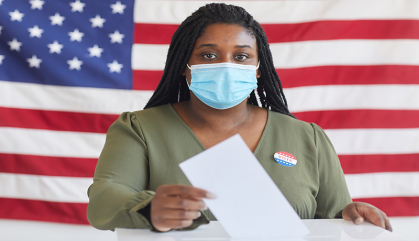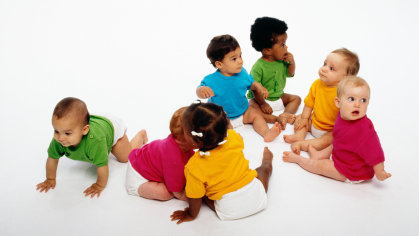Pandemic's Impact on Voting Rights and Election

The 2020 presidential election is one of the most anticipated in recent history with COVID-19, racial justice and the economy at the forefront and registered voters making their voices heard either with mail-in ballots or by standing in line to cast their ballot at the polls.
Elizabeth C. Matto, an associate research professor at Rutgers’ Eagleton Institute of Politics and director of the Institute’s Center for Youth Political Participation, discusses changes in New Jersey’s voting system this election cycle and the voter resources available to help them navigate the changes.
How has COVID-19 impacted the way we vote?
Voting is different this year due to the pandemic. Each state has taken a different approach to changing their voting systems in order to address concerns of COVID-19 exposure and spreading. In New Jersey, all active registered voters received mail-in-ballots. Mail-in-ballots must be postmarked on or by Election Day, but according to New Jersey Secretary of State Tahesha Way, to be safe, voters may want to utilize the other methods available to submit their ballots at this point. Voters can submit their ballots at election offices and county election drop boxes. Voters can even drop-off their mail-in-ballots at their polling location on the day of the election. (Watch this video to learn more.) Voters can still vote in person by voting provisionally. Once county election officials verify that they didn't submit their mail-in-ballot, the vote will be counted.
For voting information specifically for Rutgers students, visit RU Voting Rutgers or the New Jersey Voter Information Portal. Visit RU Voting-National for current state by state voter and Election Day information.
How has COVID-19 impacted voting rights?
When major voting system changes occur, it is important for states to launch robust public education and information campaigns so that voters are aware of the change. Misinformation or a lack of information can leave voters vulnerable to voter suppression. Therefore, it is important to reach out to communities for whom such information is not readily accessible or for whom English is not their first language. For instance, public education campaigns need to be delivered in multiple languages and through multiple forms of communication beyond the internet. In New Jersey, the Department of State launched public education videos in multiple languages to make the voting and election information accessible to different communities. Our Center for Youth Political Participation also created a voter information video in Spanish.
To ensure that voting rights are secure it’s also very important that voters who need accommodations or assistance to cast their ballot receive that support. On Election Day, voting machines will be available at polling locations for voters with disabilities. The Center for Youth Political Participation created an informational video about voting accommodations for voters with disabilities.
How will Election Day be different this year?
Most significantly, we may not know the outcome of all contests on Election night. It may take a few days or potentially even weeks for the election results to be finalized. We have not experienced this since the 2000 election, so this uncertainty about the election outcome will be a first for many new voters. What matters most though is that results are accurate, not that they are delivered quickly. It's incumbent upon all of us to be patient and let the democratic process play out.


